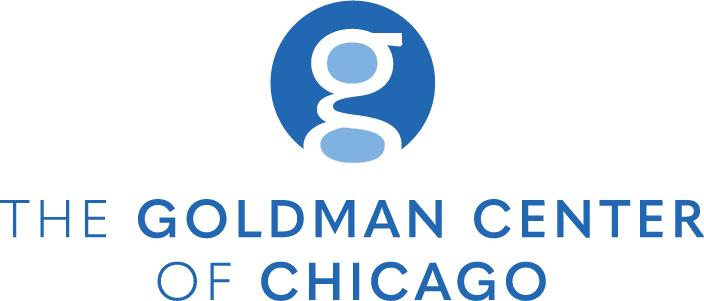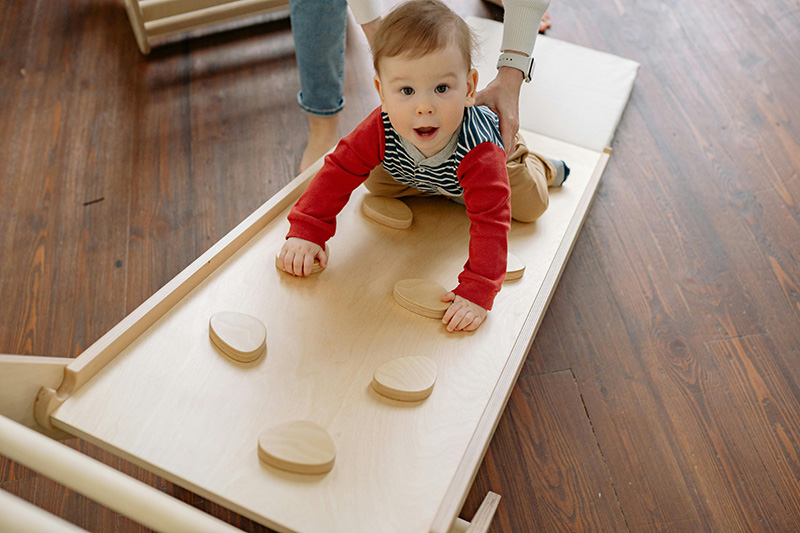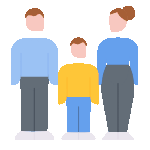Since pediatric neuropsychologists often work on a multidisciplinary team of professionals, they may work with pediatric physical therapists or provide referrals for these services.
What is Physical Therapy?
Physical therapy helps children to actively participate and function independently in home, school, and community environments. Physical therapists work to help children learn to perform gross motor skills to improve functional mobility skills.
What does Physical Therapy Address?
Physical therapy aims to help a child function, move, and live to their best ability. Physical therapy services include:
- Providing education and resources about a child’s physical and health care needs to their family.
- Expanding a child’s mobility options.
- Educating a child and their family on proper use of orthotics, prosthetics, adaptive equipment, and other adaptive technology.
- Increasing a child’s mobility and independence through exercises and adaptive equipment.
- Providing resources to family to help a child transition through stages of life as smoothly as possible.
- Adapting toys and other equipment to a child’s specific needs and ability levels.
- Educating and instructing the child’s family about proper positioning throughout the day to prevent adverse reactions.
- Facilitating safety within the child’s home, school, and community.
What are the Benefits of Physical Therapy?
There are many benefits to physical therapy. Participating in therapy allows a child to learn functional mobility skills, heal from injuries, gain independence, and connect with specialized equipment.
Learn Functional Mobility Skills: A child receiving physical therapy has the opportunity to learn functional mobility skills that help develop their muscles and joints to make everyday tasks easier.
Heal from Injuries: Physical therapy helps children to recover and heal from physical injuries by improving their strength, endurance, balance, and range of motion.
Gain Independence: A child receiving physical therapy has the opportunity to gain independence by learning strategies and techniques that maximize the use of their body. Physical therapists help children to learn how to use their body properly, good posture, adaptive equipment, and prosthetic devices according to their individual ability levels so they can learn how to participate in their daily routines by reducing the need for assistance from others.
Connect with Specialized Equipment: Physical therapy services connect children with specialized equipment that helps them live productive lives. This equipment includes, but is not limited to, wheelchairs, splints, communication aids, and other adaptive devices. A physical therapist works with the child to help them learn how to use their equipment to maximize their function.
Where does Physical Therapy Occur?
A child can receive physical therapy in school, at home through a private practice, in an outpatient facility, at recreation centers, in childcare centers, in the hospital, in early intervention programs, and through community outreach programs.
Who Receives Physical Therapy?
Physical therapy can benefit populations of children with childhood disorders and diseases that present with motor skill or movement issues, developmental coordination disorders, or orthopedic conditions. These populations include children with:
- Autism Spectrum Disorder
- Muscular Dystrophy
- Spina Bifida
- Cerebral Palsy
- Juvenile Rheumatoid Arthritis
- Arthrogryposis
- Cystic Fibrosis
- Cardiopulmonary Disorders
- Cancer
- Traumatic Brain Injury
- Hypotonia
- Developmental coordination disorders without formal diagnosis
- Scoliosis
- Back pain
- Sports injuries
- Orthopedic surgeries
- Fractures
- Chronic illnesses
- Chronic pain
Why is Pediatric Physical Therapy Special?
Pediatric physical therapy is special because it is play-based care that involves a child’s family throughout the treatment process. Physical therapy incorporates function into activity and keeps therapy enjoyable for children. A child’s physical health is not the only focus of treatment. Physical therapists work with a child’s family to coordinate services, advocate, and enhance development. Physical therapy aims to provide a child with the best overall quality of life.









